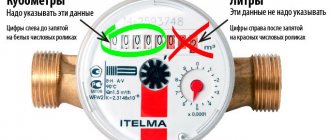The introduced changes to the previously existing system of household waste removal caused an increase in tariffs for the services of regional operators and again aggravated the problem of disposal of solid municipal waste.
Do you think rotten potatoes belong to MSW?
Not really
After the transfer of this function from municipal municipal services to a new entity - the regional operator, city residents and company managers began to study this category of waste. They are interested in what applies to them and how much it will cost to dispose of such waste residues from human life.
What is solid waste
Explanation: MSW is municipal solid waste. They accumulate over a certain period in a single apartment and are divided into two groups: biological and artificial. The first includes waste of natural origin - leftover food and plants. The non-biological group includes plastic and metal waste, cellophane bags, cardboard boxes, shoes, clothing, and household appliances.
On December 29, 2014, changes were made to the country's legislation. The released law 458-F3 introduced a new concept of MSW - municipal solid waste. To avoid confusion, let's look at how the two terms differ.
List of waste related to MSW with codes
Since 2021, solid household waste has been assigned the FKKO code, which should simplify the problem of its removal and destruction. Regional operators, according to the adopted amendments to Federal Law No. 89, must transport to landfills, after concluding agreements with the owners, only those household wastes that are indicated in the classifier.
Is TV included in the MSW category?
Not really
Sampling from FKKO types of waste related to MSW:
| 7 30 000 00 00 0 | MUNICIPAL WASTE, SIMILAR TO MUNICIPAL WASTE, IN PRODUCTION AND IN THE PROVISION OF SERVICES TO THE PUBLIC |
| 7 31 000 00 00 0 | Solid municipal waste |
| 7 31 100 00 00 0 | Waste from homes |
| 7 31 110 00 00 0 | Waste from homes during joint collection |
| 7 31 11 001 72 4 | unsorted waste from homes (excluding bulky waste) |
| 7 31 110 02 21 5 | bulky waste from homes |
| 7 31 120 00 00 0 | Waste from homes with separate collection |
| 7 31 200 00 00 0 | Waste from cleaning the territory of urban and rural settlements, classified as municipal solid waste |
| 7 31 200 01 72 4 | street trash and rubbish |
| 7 31 200 02 72 5 | garbage and estimates from cleaning parks, squares, public recreation areas, embankments, beaches and other amenities |
| 7 31 200 03 72 5 | waste from cleaning the territories of cemeteries and columbariums |
| 7 31 205 11 72 4 | waste from cleaning the curb area of highways |
| 7 31 210 00 00 0 | Waste from winter street cleaning |
| 7 31 211 00 00 0 | Waste from snow melting using snow melting equipment |
| 7 31 211 01 72 4 | waste from snow melting station grates |
| 7 31 211 11 39 4 | snow melting equipment cleaning sludge with a predominant content of silicon dioxide |
| 7 31 211 61 20 4 | snow melting waste using snow-melting equipment, dehydrated by natural drying, low-hazard |
| 7 31 211 62 20 5 | snow melting waste using snow melting equipment, dehydrated by natural drying, practically non-hazardous |
| 7 31 290 00 00 0 | Other waste from cleaning the territory of urban and rural settlements |
| 7 31 300 00 00 0 | Plant waste from the care of lawns, flower beds, and tree-shrub plantings, classified as municipal solid waste |
| 7 31 300 01 20 5 | plant waste when caring for lawns and flower beds |
| 7 31 300 02 20 5 | plant waste when caring for trees and shrubs |
| 7 31 900 00 00 0 | Other municipal solid waste |
| 7 33 000 00 00 0 | Industrial consumption waste, similar to municipal waste |
| 7 33 100 00 00 0 | Garbage from office and domestic premises of enterprises and organizations, classified as municipal solid waste |
| 7 33 100 01 72 4 | unsorted waste from office and domestic premises of organizations (excluding large-sized ones) |
| 7 33 100 02 72 5 | waste from office and domestic premises of organizations is practically harmless |
| 7 33 151 01 72 4 | garbage from household premises of ships and other floating craft not intended for the carriage of passengers |
| 7 33 900 00 00 0 | Other industrial consumption waste, similar to municipal waste |
| 7 34 000 00 00 0 | Waste when providing transport services to the population |
| 7 34 100 00 00 0 | Garbage and waste from cleaning railway and bus stations, airports, terminals, ports, metro stations, classified as municipal solid waste |
| 7 34 121 11 72 4 | waste (garbage) from cleaning passenger terminals of train stations, ports, airports |
| 7 34 131 11 71 5 | estimates from the territory of railway stations and platforms are practically harmless |
| 7 34 200 00 00 0 | Garbage and waste from cleaning rolling stock of railway, road, air, and water transport, related to municipal solid waste |
| 7 34 201 00 00 0 | Garbage and waste from cleaning rolling stock of railway transport (waste from cleaning railway freight cars, see group 9 22 100) |
| 7 34 201 01 72 4 | waste (garbage) from cleaning passenger cars of railway rolling stock |
| 7 34 202 00 00 0 | Garbage and waste from cleaning the rolling stock of urban electric transport |
| 7 34 202 01 72 4 | waste (garbage) from cleaning the electric rolling stock of the metro |
| 7 34 202 21 72 4 | waste (garbage) from cleaning the rolling stock of urban electric transport |
| 7 34 203 00 00 0 | Garbage and waste from cleaning rolling stock of automobile (bus) passenger transport |
| 7 34 203 11 72 4 | waste (garbage) from cleaning the rolling stock of automobile (bus) passenger transport |
| 7 34 204 11 72 4 | garbage, waste and in-flight catering waste from aircraft cleaning |
| 7 34 205 11 72 4 | waste (garbage) from cleaning passenger ships |
| 7 34 205 21 72 4 | special ship waste |
| 7 34 900 00 00 0 | Other waste in the provision of transport services to the population, related to municipal solid waste |
| 7 34 951 11 72 4 | unclaimed luggage |
| 7 35 000 00 00 0 | Waste from the provision of wholesale and retail trade services related to municipal solid waste |
| 7 35 100 00 00 0 | Waste (garbage) from cleaning the territory and premises of wholesale and retail trade facilities |
| 7 35 100 01 72 5 | waste (garbage) from cleaning the territory and premises of wholesale and retail trade in food products |
| 7 35 100 02 72 5 | waste (garbage) from cleaning the territory and premises of wholesale and retail trade in industrial goods |
| 7 36 400 00 00 0 | Waste (garbage) from cleaning premises, organizations providing social services related to municipal solid waste |
| 7 37 000 00 00 0 | Waste from the provision of services in the field of education, art, entertainment, recreation and sports, classified as municipal solid waste |
| 7 37 100 01 72 5 | waste (garbage) from cleaning the territory and premises of educational institutions |
| 7 37 100 02 72 5 | waste (garbage) from cleaning the territory and premises of cultural and sports institutions and entertainment events |
What is the difference between MSW and MSW?
In fact, MSW is the same as MSW, only in a broader sense. Municipal waste is directly related to waste of natural and artificial origin, which has ceased to be useful in everyday life. The same as for household items. With only one difference: MSW includes office waste of legal entities.
While working in the office, an employee also throws paper, plastic cups, and bags into the trash. In office centers there are vending machines selling drinks, chips, and snacks. All this household waste also needs to be taken into account, stored and removed. But calling this waste household waste is not entirely correct. That's why they got the name communal.
Law on Solid Waste
At the legislative level, back in 1998, a regulatory legal act was adopted, the law on solid waste (No. 89-FZ), which regulates the management of solid waste. It provides both general definitions and requirements. For example, the third chapter contains the responsibilities of business entities whose activities pollute the environment. They have to:
- Pay the established fee for causing environmental damage;
- Introduce technological innovations for waste-free production;
- Independently monitor the environmental situation;
- Document the results of studies of solid waste storage sites.
After changes made to it in 2021, entities that have not received the appropriate license are prohibited from engaging in waste management activities. For reference!
Types of MSW and their composition
By law, solid municipal waste must not contain radioactive, toxic or other substances harmful to health. The presence of metal and plastic materials is also kept to a minimum.
What applies to MSW
The list of MSW as of 2021 is small. This category includes:
- paper and cardboard products;
- street garbage (leaves, branches, dust);
- plant and food residues;
- broken household appliances, small electronics;
- old wooden furniture;
- household chemicals;
- old shoes and clothes;
- small metal and plastic elements;
- old musical equipment;
- remnants of the old road surface.
Attention! Solid municipal waste must exclude the content of substances hazardous to health. Disposing of toxic substances into public waste bins is strictly prohibited.
Is food waste considered MSW?
According to Federal Law No. 89, food and vegetable waste is directly related to municipal solid waste. Removal and disposal of this category is carried out on a general basis. The regional collection operator may place a separate food waste collection container on site, but may not do so.
List of solid municipal waste according to FKKO
In 2021, amendments were made to the legislation regarding waste classification. We are talking about the introduction of special codes on the basis of which the category of waste is determined. They are listed in the Federal Classification Catalog. The official version is available for viewing in legal reference systems, it can be found on the Internet or downloaded from our website.
Waste Classification Catalog (WCC)
What applies to solid household waste according to Federal Law 89?
The amendments made to Federal Law No. 89 on regional operators and waste from the activities of legal entities do not cancel the definition of solid household waste given by this law. The law specifies not only what waste is classified as solid waste, but also legalizes the right of the regional operator to transport waste of hazard classes 4 and 5 that is not related to solid waste to city landfills. This right is enshrined in Art. 24.7.
Such household waste includes a lot of scrap made from a variety of industrially valuable materials that can be valuable raw materials for recycling residues:
- cardboard products;
- paper;
- metal structures;
- textile products;
- plastic;
- organic waste;
- rubber;
- glass scrap;
- leather products;
- remnants of wooden products.
The development of technologies and their introduction into the production of consumer goods has led to the fact that the once safe solid waste now increasingly includes materials hazardous to human health and the environment, which cannot be sent to a landfill with paper packaging and wooden trash. This is about:
- old batteries;
- batteries from gadgets and electrical appliances;
- construction varnishes;
- electrical appliances;
- cosmetics and old medicines;
- paints;
- pesticides;
- chemicals used in everyday life;
- fertilizers and pesticide residues;
- medical waste;
- household lighting devices containing mercury.
This increasingly sharpens the problem of sorting at the stage of accumulation of such waste, which remains after the consuming population. The increase in the volume of such rubbish every year exacerbates the problem of its recycling, which in the Russian Federation is still very poorly solved.
Who should collect, store and dispose of MSW?
Taking into account the negative impacts on the environment, the state is regulating the circulation of various wastes. Activities related to the collection, storage and disposal of any type of waste are subject to mandatory licensing.
Read about obtaining a waste removal license here
Changes in legislation in 2021
On January 1, 2021, there were major changes in legislation. Before them, the management company, the housing office, was responsible for the storage and removal of waste. Now this is handled by a special regional operator. The innovations also affected private citizens. A new line “MSW removal” has appeared in rent payments.
Requirements and standards
In Russia there is a regulatory system for the accumulation of unnecessary materials, broken down and used consumer goods. The calculation is made for both enterprises and residential sectors. To formulate the norm, the following points are taken into account:
- Gas pipeline system in the premises/enterprise.
- Waste pipeline with free passage.
- Sewage system, as well as other water mains.
- Heating system.
- Total living area/business area.
- The climate in a particular region.
For a more detailed calculation of waste accumulation rates, approximate indicators are taken into account:
- Comfortable housing – 300 kg of waste and 1.5 m3 per year.
- Well-equipped dwellings and public buildings – 300 kg and 1.5 m3 per year.
- Dwellings with no sewerage system - 600 kg and 3.5 m3 per year.
When drawing up a contract for waste removal, it is necessary to indicate information about the methods of storing municipal waste. According to current legislation, the contract must contain the following clauses:
- availability of containers;
- garbage collection chambers;
- special transport;
- waste storage bins;
- waste disposal systems;
Note! The document must indicate the amount of waste and the place for its storage before removal.
Classification of solid waste
The law also provides a classification of solid waste.
The legislator divided waste into 5 hazard classes, the first 4 of which pose a threat to the environment. The most dangerous are grades 1 and 2.
There are other classification approaches, namely:
- By morphological composition: glass, rubber, organics, plastic, paper, wood, etc.;
- Based on the time of use, solid waste is divided into short-term (paper, fabrics, plastic dishes, etc.) and long-term use (tires, household appliances, furniture).
Decree of the Government of the Russian Federation on the management of MSW
Each of the above types of impact on MSW waste is provided for and regulated by the Rules for the management of MSW, which in turn are approved by the Decree of the Government of the Russian Federation of November 12, 2016 N 1156 “On the management of municipal solid waste and amendments to the Decree of the Government of the Russian Federation of August 25, 2008 . N 641".
Rules for handling MSW
developed and adopted in order to establish a uniform procedure for all:
- implementation of accumulation, collection, transportation, processing, disposal, neutralization and burial of solid municipal waste,
- concluding an agreement for the provision of services for the management of municipal solid waste,
and
- grounds on which a legal entity may be deprived of the status of a regional operator for the management of municipal solid waste.
Housing legislation is general in relation to the special regulation under consideration, and therefore the Rules for the management of solid waste apply to relations related to the provision of public services for the management of municipal solid waste , in part not regulated by the housing legislation of the Russian Federation:
- between owners of residential premises and (or) users of residential premises in apartment buildings and management organizations, HOAs, housing cooperatives
- between owners of premises, users of residential premises in apartment buildings, owners of residential buildings and operators for handling solid municipal waste,
- between the owners of residential buildings and organizations (including non-profit associations), which, on their own behalf and in the interests of the owner of the residential building, enter into contracts for the provision of services for the management of solid municipal waste with the relevant operators for the management of solid municipal waste.
| MSW management component: | Definition |
| MSW accumulation | storage of municipal solid waste in places (sites) for the accumulation of solid municipal waste, determined by the contract for the provision of services for the management of solid municipal waste, in accordance with the waste management scheme |
| MSW collection | activities of the regional operator in organizing stationary and mobile waste collection points, including through automatic waste collection devices |
| transportation of MSW | removal by the regional operator of solid municipal waste from places (sites) of its accumulation to facilities used for processing, recycling, neutralization, and disposal of solid municipal waste |
| MSW processing | sorting of solid municipal waste (including automated) with mandatory extraction of waste of hazard classes I and II in order to prevent their entry into solid municipal waste disposal sites |
| disposal neutralization disposal of municipal solid waste | activities of the regional operator to ensure the receipt of a final product available for use in other technological processes as a feedstock or additive to the main raw material |
Rules for handling MSW in Resolution 1156
to achieve the above goals include:
- procedure for concluding an agreement for the provision of services for the management of solid waste (section I(1));
- procedure for transporting MSW (Section II);
- rules for processing, disposal, neutralization and disposal of MSW (Section III);
- grounds on which a legal entity may be deprived of the status of a regional operator for the management of municipal solid waste.
In addition, the MSW Rules contain the form of a standard contract for the provision of services for the management of MSW.
Rules for the provision of the MSW management service
Utility work is work performed by specialized organizations in accordance with an agreement between the consumer and the operator for the management of solid waste.
The contract for the provision of services for the management of municipal solid waste is concluded in accordance with section I (1) of the Rules for the management of solid waste.
In order for the MSW management service to be provided to you, you must fulfill your obligations for the management of MSW, namely, to store municipal solid waste in places (sites) for the accumulation of municipal solid waste , determined by the contract for the provision of services for the management of solid municipal waste. waste, in accordance with the waste management scheme.
MSW storage
Storage of municipal solid waste is carried out by consumers using exhaustive and strictly established methods for storing MSW , or rather, in special storage areas for MSW :
a) into containers located in garbage collection chambers (if there is an appropriate in-house engineering system); b) into containers, bunkers located on container sites; c) in bags or other containers provided by the MSW management operator.
Removal of bulky waste is provided by the regional operator, including at the request of consumers, or by consumers themselves by delivering bulky waste to the site for storage.
The regional operator is responsible for the management of municipal solid waste from the moment such waste is loaded into a garbage truck.
Important points for consumers
In general, the new law seems very doubtful from the point of view of the legality of the norms established in it. However, the law is the law, and everything that is reflected in it automatically becomes legal.
But this is not the only drawback of the legal act. So, in addition to dubious norms, there are quite a lot of gaps in it.
It is necessary to note the following gaps, which are of primary importance for consumers of services:
- Although the law establishes the operator's obligation to install and maintain waste collection points, it does not determine the status of existing points. Thus, most apartment buildings today are already equipped with such points and they belong to the municipality. Now their affiliation is unclear. In any case, the federal law says nothing about this. However, as practice suggests, in some regions municipalities have obliged residents and housing organizations to buy these points and provide them for service by operators.
- The law does not contain a system for evaluating the operator’s activities. Thus, it contains only vague concepts such as “safety” and “quality”. But specific evaluation criteria for these qualities have not been established. Thus, this is also left to the discretion of the local administration or subject to settlement under an agreement with the operators. But in any case, the assessment system, at least at the level of private law relations, must be designated.
- The procedure for resolving disputes with operators is also not regulated privately. Consumers can only act within the general framework of resolving civil disputes and protecting consumer rights. So far, the public liability of operators is not specified in any legislative act. But responsibility for storing waste has been established for a long time. But it would be better if there was public responsibility for the quality of services provided to consumers.
Thus, the new law almost completely transferred the responsibility for garbage collection from municipalities to private individuals.
So, we should soon expect an increase in the cost of this service, since private organizations will provide it not for the purpose of fulfilling a duty to the population, but for the purpose of making a profit.
Why is solid waste removal needed?
The answer to this question would seem obvious. Garbage is removed to keep the city clean. However, this is only the tip of the iceberg. In fact, the problem is much deeper.
The environment, which already has many problems in cities, depends on waste removal. Systematic garbage removal is a way to avoid epidemics of various diseases.
After all, spontaneous landfills attract animals - carriers of pathogenic microflora that cause dangerous illnesses in people.
If you stop collecting garbage, environmental problems cannot be avoided. Within a few days, epidemics resulting from the decomposition of waste can be triggered.
The products of decay quickly enter the soil and water, spreading in all directions, infecting all living things, including people.
But if waste removal is carried out in compliance with environmental standards, then decay products will not end up in the soil or water. This is why solid waste removal is needed.







